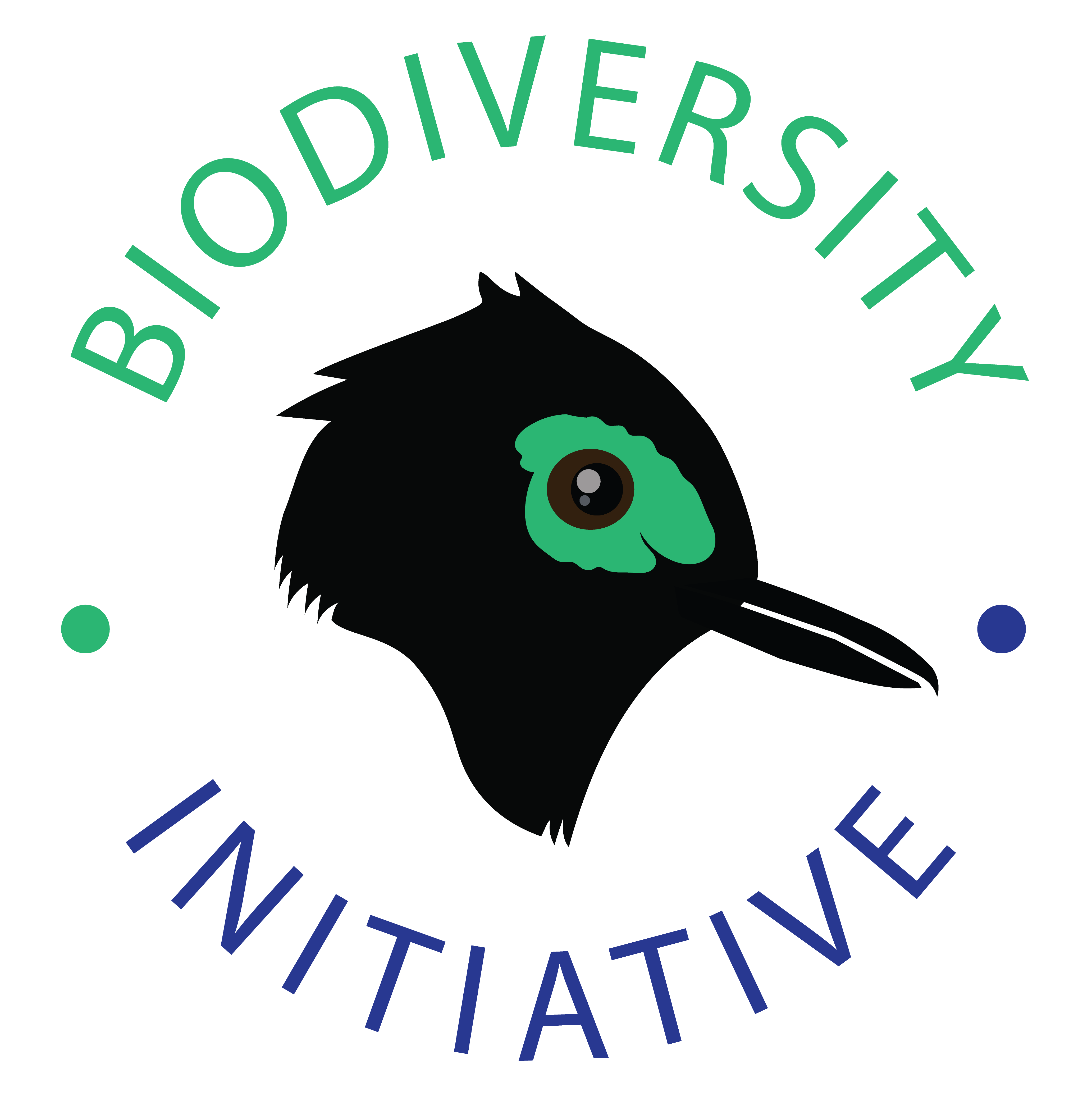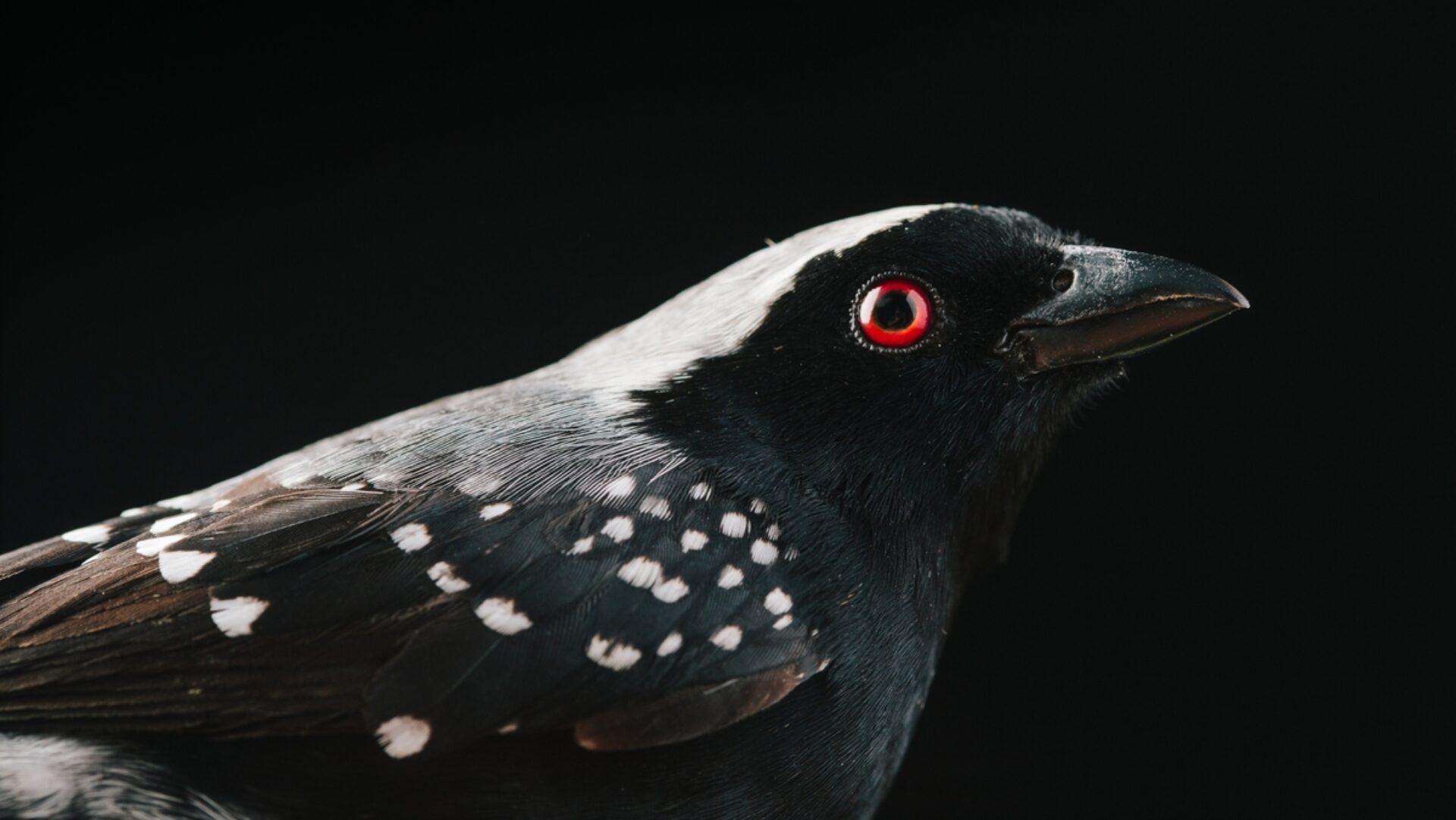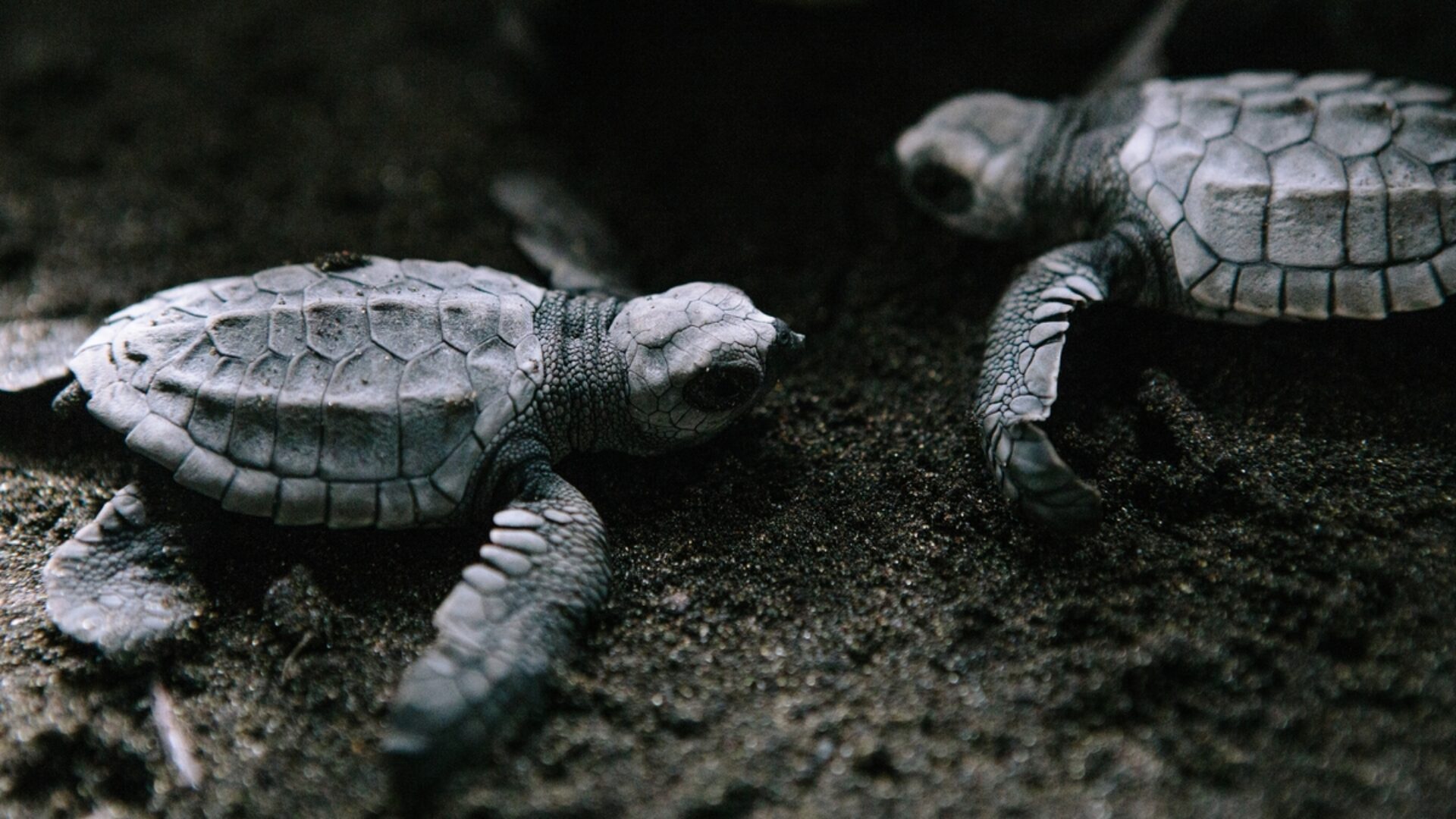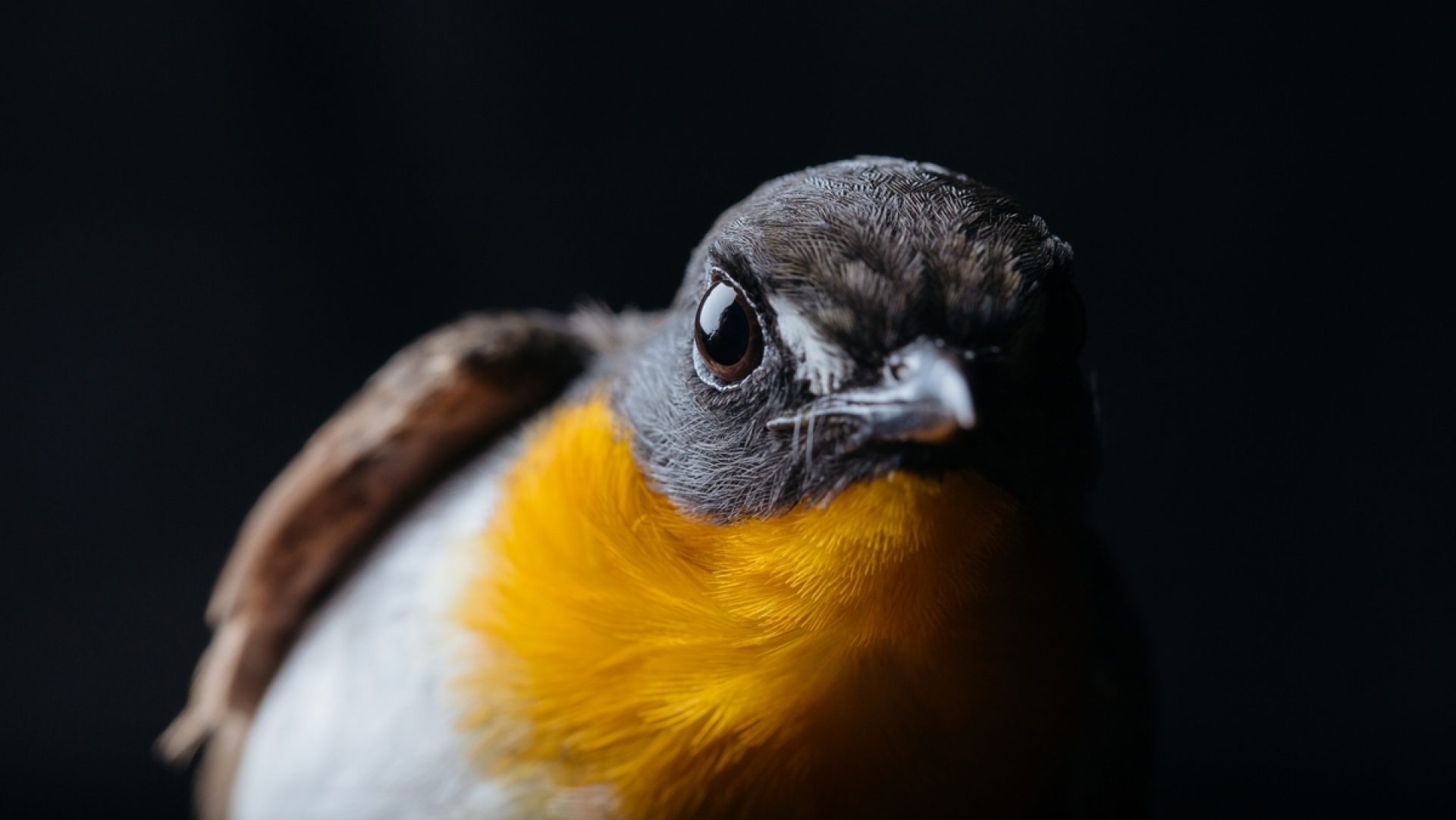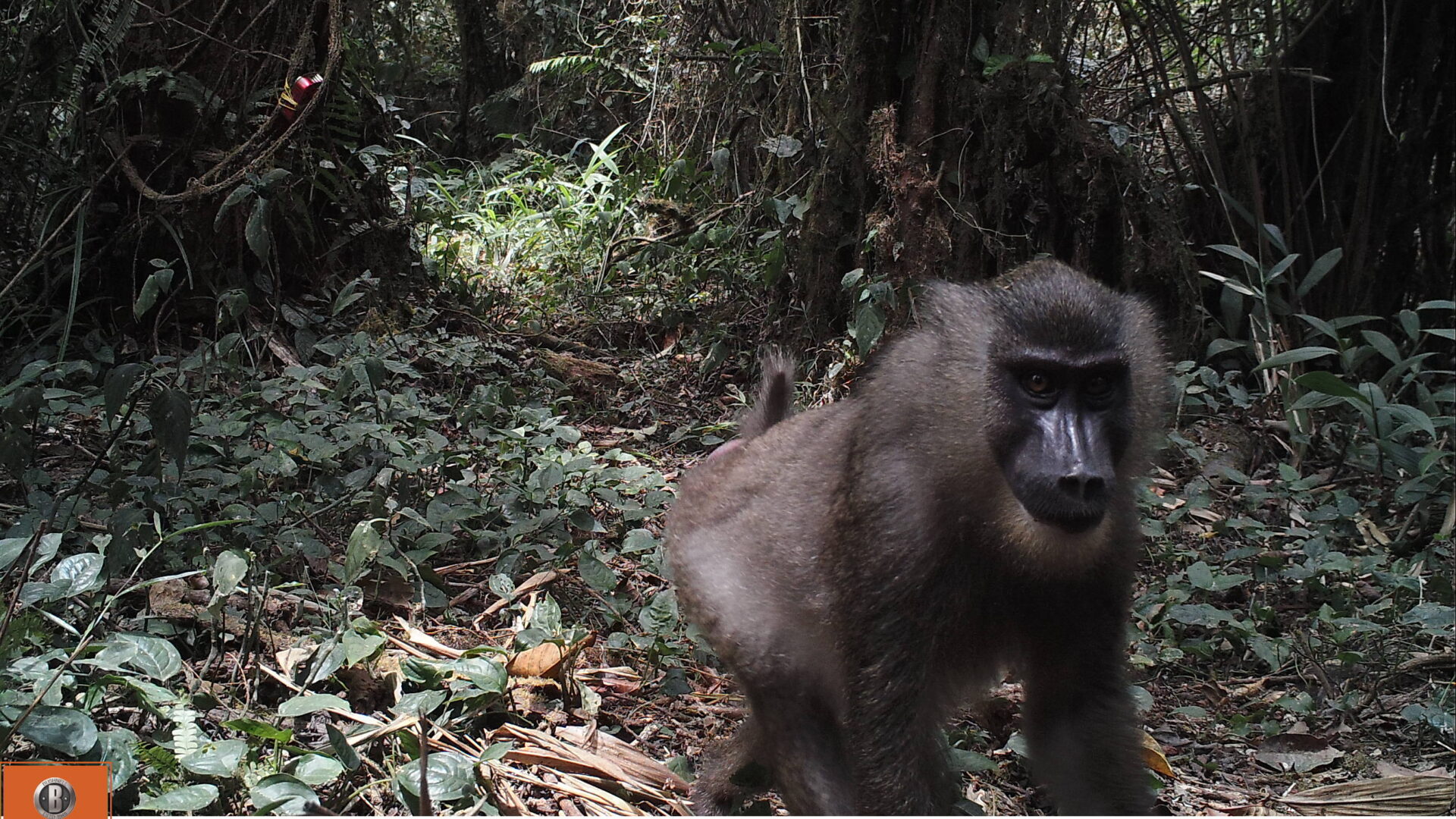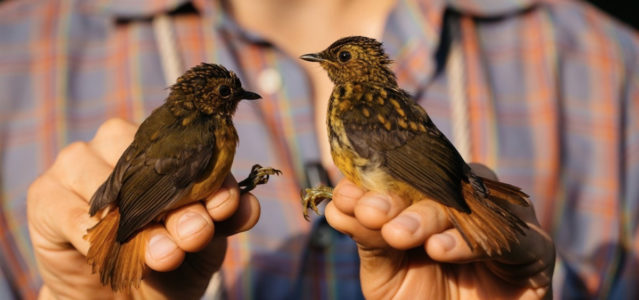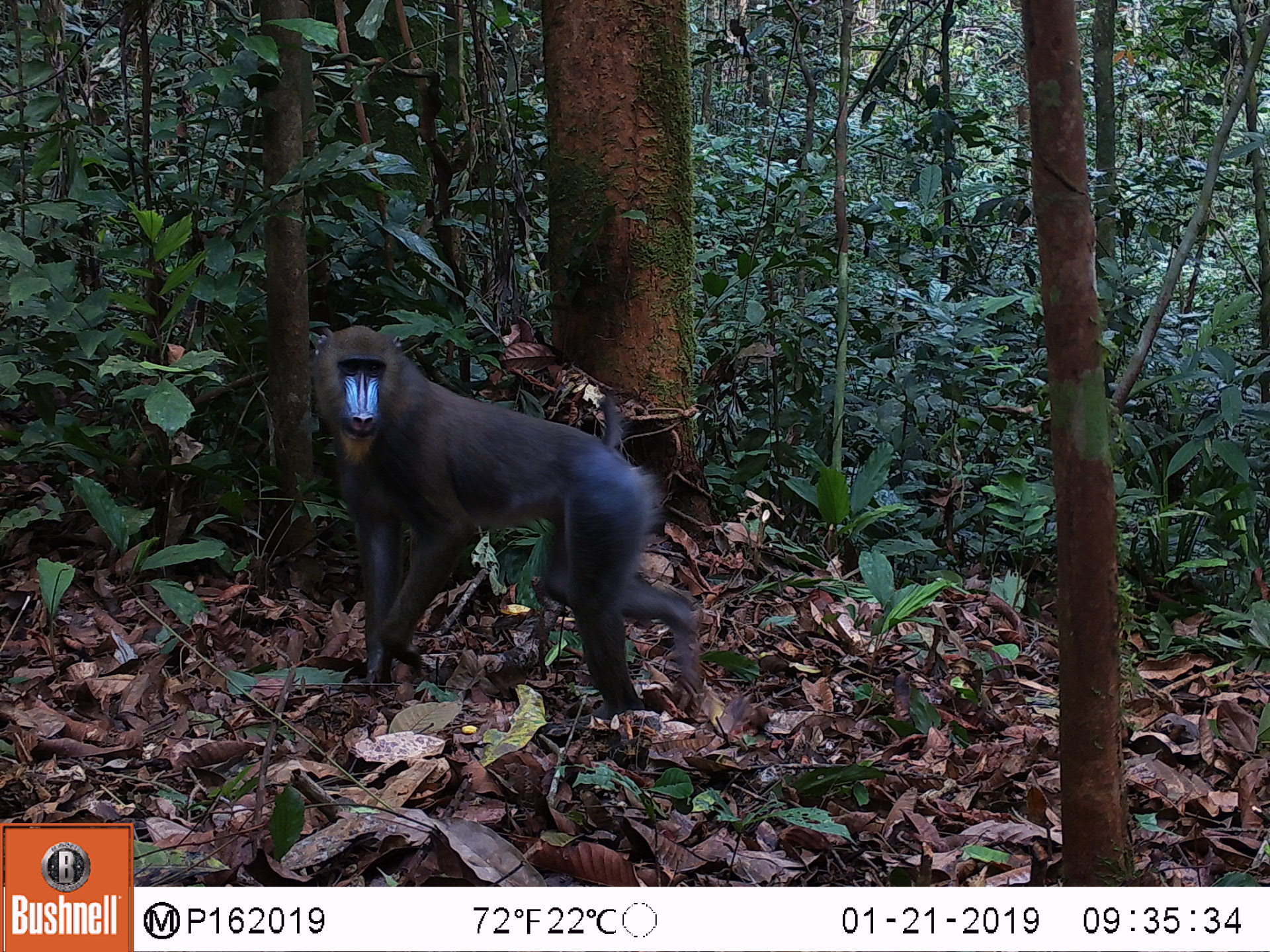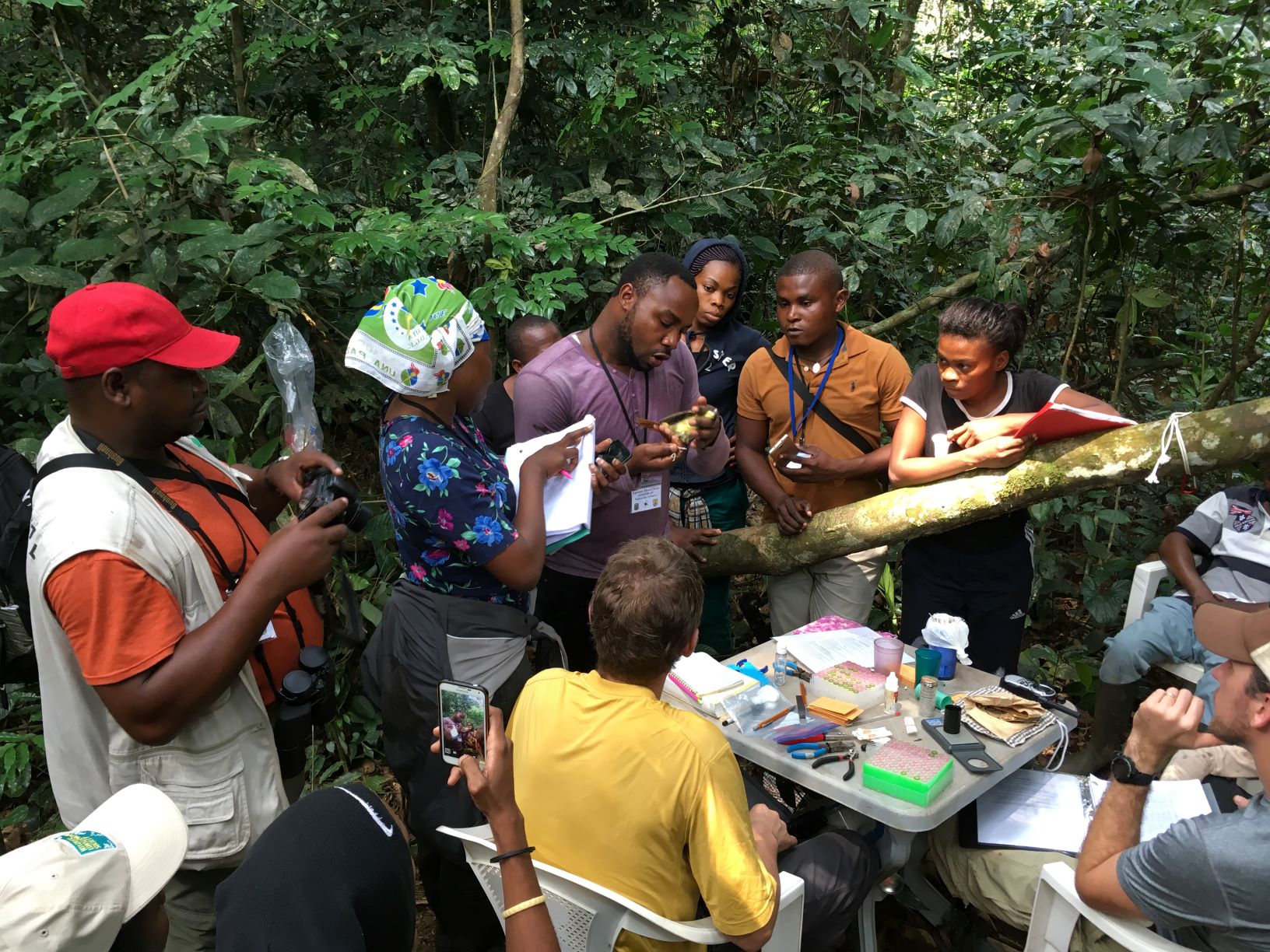Biodiversity Initiative is a not-for-profit research and conservation collaborative that exists to conserve biodiversity through ecology, exploration and education.
When our organization was formed in 2013, we focused primarily on bird conservation and research in the African country of Equatorial Guinea. Since then we have expanded our scope and geographical range to protect all wildlife –
including forest elephants, gorillas, chimpanzees, and hundreds of bird species – and to conserve rainforest across the Afrotropics.
One of our core aims is to educate and build capacity within local African communities. Through each of our conservation work programmes, we strive to provide local communities with the proper tools and training needed to protect their local wildlife and rainforest. We hope to instill within these communities pride in their rich biodiversity, and encourage long term, sustainable protection of their local environment for generations to come.
Although we are a small organisation, our work continues to make significant waves in scientific discovery, conservation and environmental protection. This ranges from pioneering new DNA sequencing techniques, to finding more than 10 species never before recorded in the Equatoguinean rainforest, to assisting in the shutdown of several illegal logging and poaching operations.
We continue to expand our reach through our workshops which have benefitted more than 100 early-career central African biologists and 1000 cocoa farmers, and through world-renowned publications such as Audubon and National Geographic that have featured our work.
Who benefits from the work of Biodiversity Initiative?
The wildlife of central Africa, local African communities and the wider global community all face unique challenges that can be mitigated through our work.
Wildlife:
Widespread human activity and development (such as illegal logging, agricultural expansion and hunting) pose significant threats to tropical wildlife in central Africa. The rapid growth of Equatorial Guinea’s population also poses a risk to its biodiversity. The current population (c.1.2 million people) is almost three times greater than that in 2000 – as it continues to grow, the intensity of these human activities and the pressures on the country’s rainforest and wildlife will continue to increase.
Despite representing 93% of the country’s landmass, mainland Equatorial Guinea is very poorly surveyed, and as such, its wildlife and dense rainforest are poorly understood. The disappearance of this wildlife – before it has even been discovered – will have severe repercussions on the health of the rainforest and the livelihoods of the local people. Birds, for example, help pollinate plants, spread seeds that regenerate the rainforest, and eat pests that damage farmers’ crops. To inform our wildlife conservation practices, we must first identify which species exist. Only then may we explore the best ways to support these species and help maintain the delicate balance of the rainforest biome.
Biodiversity Initiative is working to survey wildlife in these important areas and to help inform conservation management. Through our bird monitoring expeditions, we collect an unprecedented amount of information for thorough genetic testing, diet analysis, stress testing, and physical assessments. This allows us to understand habitat needs and identify species that are sensitive to environmental changes and are at risk of local or global extinction. Our camera trap work and cutting-edge genetic techniques allow us to survey mammal populations in these important ecosystems. Through our relationships with the local government and stakeholders, we can use this information to inform policies and practical conservation actions to protect the rainforest and its vulnerable wildlife.
Local African communities:
Effective biodiversity conservation is nearly impossible without the appropriate infrastructure in place. The mismanagement of natural resources, unsustainable economic policies, and meager public spending on education are major factors that contribute to unbalanced development and insufficient infrastructure in Equatorial Guinea.
Unfortunately, these existing systems do not enable or encourage local communities to effectively protect of their valuable rainforest and wildlife. Although some measures have been put in place to help reduce illegal activities, limited access to proper education, training and tools still restricts the local people’s ability to effectively protect their environment. Despite their best efforts, this has made the enforcement of these measures extremely challenging.
Biodiversity Initiative is committed to enhancing local capacity. We integrate local students and early-career researchers from Equatorial Guinea into our research program to help prepare a generation of informed, motivated, and eventually independent leaders, to sustain biodiversity conservation on a local level. We also work with the existing Conservators and Eco-guards to train them in camera trap deployment and monitoring. This allows us to build the country’s capacity to steward and sustainably protect their rich natural environment.
Global community:
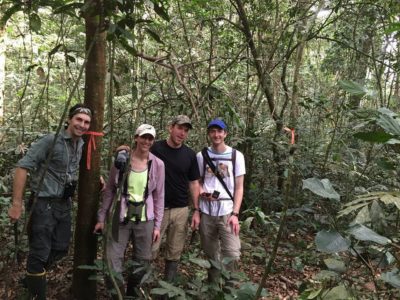
As humans destroy the equivalent of one Ireland-sized swath of tropical rainforest every year, there are ramifications for biodiversity loss, habitat loss, and climate change across the planet. The Greater Congo rainforest (which includes Equatorial Guinea and much of Cameroon) is the second largest rainforest in the world. It stores an estimated 85 billion tonnes of carbon (which otherwise would be released into the atmosphere as CO2 and contribute to climate change) and is home to numerous threatened and endangered species, such as forest elephants, chimpanzees and gorillas.
This rainforest is enormously significant when considering environmental change on a global scale.
However, because there are so few conservation biologists working in central Africa, the flora and fauna are poorly understood relative to other regions. Until these Central African rainforests are better understood, we cannot address global environmental issues or target global biodiversity loss in an efficient way.
Because of our international reach and ties to universities in Scotland, Europe, and the U.S., we believe that we have the unique ability to raise the profile of biodiversity in central Africa, and disseminate any information in a multi-pronged, global manner. Despite being a small organisation, we continue to prove our ability to have a global impact in the nature conservation and biodiversity sector.
Background
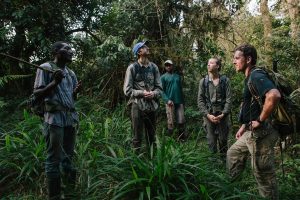
The Biodiversity Initiative was formed in 2013 as the Equatorial Guinea Bird Initiative, focusing on avian research and conservation. Since then, the group has expanded beyond birds and has expanded its geographic scope as well, prompting the need for a name change. It is very difficult to protect wildlife when: 1)When you don’t know which animals are there, 2)You don’t know what those animals need to survive and 3)Local people don’t have the capacity to protect wildlife. For these reasons, BI focuses on places, especially hyperdiverse tropical rainforests, where the animal life is poorly known. Specifically, BI focuses on:
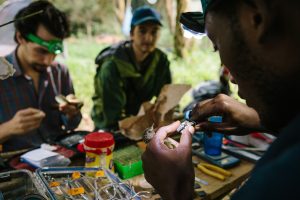
1)Wildlife surveys for birds and mammals to understand which animals are located where, 2)Ecological studies to understand survival, diet, and habitat needs of wildlife and, 3)Capacity building designed to get locals the equipment and training they need to protect their local wildlife BI works predominantly in Equatorial Guinea, the only Spanish-speaking country in Africa. EG is nestled in the Gulf of Guinea on the west coast of the Congo rainforest-the second largest rainforest in the world. This small yet incredibly biodiverse country is one of the only places you can still see chimpanzees, gorillas, and elephants roaming ancient jungles. The Biodiversity Initiative’s goal is to conserve biodiversity through exploration, education and ecology in the rainforests of Central Africa and beyond.
